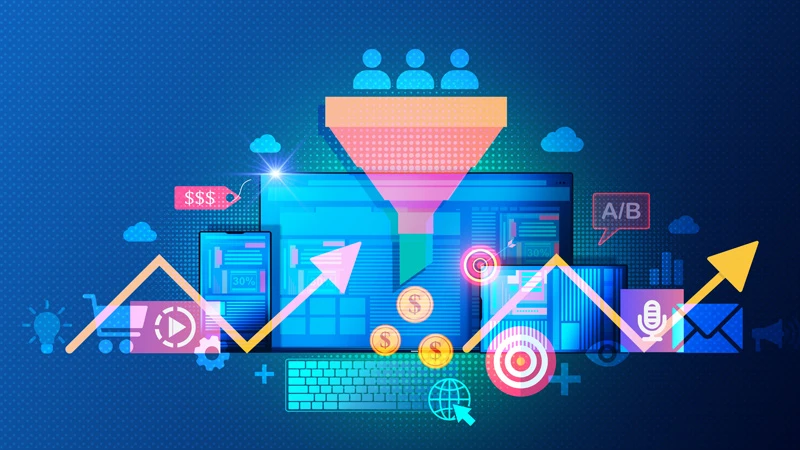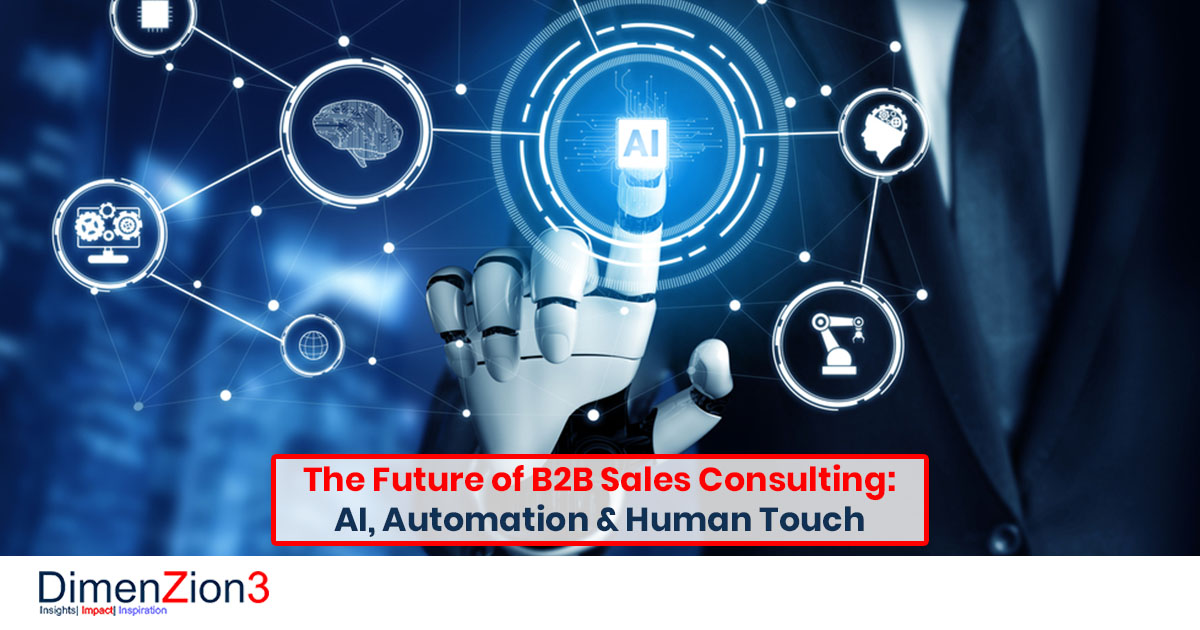Revolutionize Your Company: Just How AI Automation Is Transforming B2B Procedures
AI automation is reshaping B2B operations in substantial methods. Business are adopting this innovation to simplify workflows and improve effectiveness. As tasks end up being automated, businesses can focus on critical growth instead of ordinary processes. The implications of these changes are extensive, influencing everything from consumer interactions to provide chain administration. Understanding this transformation is vital, as the future of business depend upon the efficient integration of AI into day-to-day operations. What exists ahead in this evolving landscape?
Recognizing AI Automation in B2B Context
As organizations progressively seek performance, understanding AI automation within the B2B context ends up being vital. AI automation describes the application of synthetic intelligence modern technologies to simplify and boost service processes. In B2B settings, this can show up in various forms, such as automating data access, maximizing supply chain logistics, or improving inventory management. Organizations leveraging AI automation can minimize functional expenses, lessen human error, and boost productivity. AI tools can examine large amounts of data to provide workable understandings, making it possible for informed decision-making. The combination of AI into B2B operations not just transforms traditional workflows but likewise promotes agility and scalability, permitting businesses to adapt to market changes swiftly and effectively. Embracing this modern technology is necessary for staying affordable in today's electronic landscape
Enhancing Consumer Experience With AI
Just how can AI change customer communications in the B2B sector? AI boosts client experience by giving individualized, prompt, and reliable service. Digital assistants and intelligent chatbots can take care of inquiries 24/7, ensuring customers receive immediate reactions. AI Automation For B2B. Predictive analytics allow businesses to anticipate consumer demands, tailoring offerings appropriately. AI-driven systems can analyze customer data, enabling targeted marketing approaches and improved interaction. In addition, view evaluation devices evaluate client responses, helping organizations adjust their solutions. By automating routine jobs, AI maximizes personnels to concentrate on high-value interactions, fostering stronger connections. The assimilation of AI not only simplifies communication but also constructs count on and commitment, eventually raising the total client experience in the affordable B2B landscape

Improving Supply Chain Management With AI
AI plays an essential function in optimizing supply chain monitoring via predictive analytics and automated stock control. By leveraging anticipating analytics, businesses can anticipate demand changes and adjust their procedures as necessary. Automated stock systems better boost effectiveness by making sure supply levels are kept, reducing waste and improving total efficiency.
Predictive Analytics Advantages
While lots of services face obstacles in taking care of complex supply chains, predictive analytics uses a transformative remedy by leveraging substantial amounts of data to anticipate fads and maximize procedures. By evaluating historic information alongside real-time inputs, predictive analytics enables companies to recognize patterns and anticipate future demands. This foresight enables even more enlightened decision-making, enhancing performance and minimizing expenses. In enhancement, organizations can proactively resolve potential interruptions by anticipating supply chain bottlenecks and changing strategies appropriately. The assimilation of predictive analytics not only boosts supply management however additionally promotes more powerful partnerships with suppliers and clients with timely actions to market shifts. Eventually, the adoption of anticipating analytics encourages companies to remain competitive in a progressively vibrant service setting.
Automated Stock Control
As businesses progressively count on predictive analytics to enhance supply chain operations, automated inventory control emerges as a powerful ally in this initiative. By leveraging AI-driven innovations, business can enhance accuracy in inventory tracking, reduce stockouts, and lessen excess inventory. Automated systems examine real-time data, permitting companies to predict demand fluctuations and readjust supply degrees accordingly. This not just enhances order fulfillment but likewise boosts capital administration by lowering holding prices. Furthermore, AI can recognize patterns in buying behavior, allowing even more informed decision-making pertaining to provider partnerships and procurement techniques. Ultimately, automated inventory control not only increases functional performance however likewise enhances consumer contentment by guaranteeing product schedule, strengthening its role as an important component in modern supply chain administration.
Data-Driven Choice Making Powered by AI
In today's affordable landscape, organizations increasingly depend on data-driven decision-making to enhance functional efficiency and critical planning. Expert system plays a pivotal function in this improvement by analyzing huge amounts of information promptly and precisely. AI formulas determine patterns, trends, and abnormalities that human analysts might forget, enabling companies to make educated choices based on real-time understandings. This capacity allows firms to anticipate market shifts, enhance source allowance, and tailor their offerings to customer demands. In addition, AI-driven analytics promote risk assessment and administration, ensuring that companies can navigate uncertainties successfully. By leveraging these innovative tools, organizations not just enhance their decision-making processes yet also get an affordable advantage in their particular markets, cultivating growth and development.
Automating Recurring Tasks to Boost Productivity

Integrating AI With Existing Business Procedures
Several organizations deal with challenges when integrating AI with existing organization procedures. These difficulties usually stem from a lack of recognizing pertaining to just how AI can enhance present workflows. Effective combination requires an extensive assessment of existing operations to recognize areas where AI can see post add worth. Organizations needs to likewise assure that their groups are geared up with the necessary skills to take advantage of AI devices properly. Furthermore, smooth integration rests on the compatibility of AI technologies with legacy systems. Firms typically discover it useful to adopt a phased technique, piloting AI applications in certain divisions prior to a wider rollout. This technique permits changes based upon preliminary responses, assuring smoother shifts and making best use of the prospective benefits of AI automation in enhancing efficiency and effectiveness.
Future Patterns in AI Automation for B2B Business
As B2B firms want to the future, enhanced data analytics is set to play a critical function in driving decision-making processes. Smart procedure automation will also emerge as a key trend, enhancing and simplifying operations effectiveness. These improvements promise to improve just how companies operate, eventually leading to more responsive and active organizations.
Boosted Data Analytics
While businesses progressively rely upon data-driven decisions, the duty of AI in enhancing information analytics is ending up being a lot more crucial in B2B operations. AI technologies facilitate the collection and evaluation of huge datasets, enabling firms to reveal beneficial insights that drive critical preparation. Anticipating analytics powered by AI permits companies to anticipate market fads and client actions with greater precision. In addition, maker understanding formulas enhance data analysis, identifying patterns that human experts might overlook. This causes even more enlightened decision-making and enhanced source allocation - AI Automation For B2B. As B2B companies proceed to accept AI-driven analytics, they can expect enhanced functional performance, improved consumer experiences, and a competitive edge in the marketplace. The future of information analytics in B2B hinges on integrating advanced AI abilities
Intelligent Refine Automation
Smart Refine Automation (IPA) is positioned to reinvent B2B procedures by effortlessly integrating AI innovations with standard organization procedures. This cutting-edge method incorporates robotic procedure automation (RPA) with sophisticated AI capacities, making it possible for organizations to improve performance and accuracy. Business can automate recurring jobs, such as data access and billing processing, permitting employees to focus on tactical campaigns. IPA likewise leverages device learning and all-natural language handling, enhancing decision-making through real-time data analysis. As companies increasingly embrace IPA, they can anticipate substantial expense reductions and improved consumer experiences. Future fads suggest a growing dependence on IPA for scalability and versatility, placing companies to flourish in an ever-evolving market. Embracing IPA will certainly be vital for keeping competitiveness in the digital age.
Often Asked Concerns
What Industries Advantage A Lot Of From AI Automation in B2B Procedures?
Production, logistics, finance, and healthcare sectors profit most from AI automation in B2B procedures. These sectors utilize automation to boost performance, minimize costs, enhance processes, and boost decision-making with anticipating analytics and data-driven understandings.
Exactly How Can Small Companies Implement AI Automation Successfully?
Small companies can carry out AI automation efficiently by recognizing repetitive tasks, selecting suitable tools, incorporating solutions slowly, educating personnel, and continuously assessing performance to maximize processes, making the most of and guaranteeing a smooth transition performance. AI Automation For B2B.
What Are the Expenses Connected With AI Automation Implementation?
The expenses connected with AI automation application typically include software procurement, facilities upgrades, training personnel, ongoing maintenance, and potential examination fees. These costs can differ significantly based upon the scale and complexity of the automation services selected.
Exactly how Do I Gauge ROI From AI Automation Initiatives?
To gauge ROI from AI automation efforts, one should assess expense financial savings, productivity renovations, and revenue growth against execution costs. Tracking essential efficiency signs with time provides useful insights into efficiency and general return on financial investment.
What Skills Are Needed to Manage AI Automation Projects?
Reliable management of AI automation projects calls for abilities in task monitoring, data analysis, shows, and comprehending AI modern technologies. Additionally, solid communication, problem-solving capacities, and versatility are important for maneuvering the complexities of such efforts.
As businesses increasingly seek performance, recognizing AI automation within the B2B context becomes vital. The integration of AI into B2B operations not just transforms typical process however additionally promotes dexterity and scalability, allowing organizations to adapt to market changes promptly and efficiently. While businesses progressively rely on data-driven decisions, the duty of AI in enhancing data analytics is becoming a lot more essential in B2B operations. Intelligent Process Automation (IPA) is positioned to change B2B operations by perfectly integrating AI innovations with conventional organization procedures. Efficient administration of AI automation jobs needs abilities in job management, data evaluation, programming, and recognizing AI innovations.